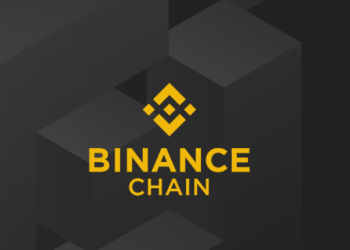
The African market is unique in many ways. Especially the region south of the Sahara. Besides high rates of poverty, this region has poor basic infrastructure and often faces political instability.
At the same time, Africa is a continent with great potential. It has a population of over 1.2 billion, and 9 out of 10 countries with the highest birth rates are located here. Even more important, this is a region with a significant amount of natural resources, including arable land, minerals, and renewable energy.
Nevertheless, it is not an overstatement to say Africa needs crypto and blockchain, in general, more than other regions on the globe. And that is because the technology promises to fix some of the most endemic and systemic problems it has faced for decades.
Generally speaking, the reasons Africans are likely to embrace cryptocurrencies and blockchain technology are not the same as those that drive adoption in North America, Europe, and other parts of the world. The selling points are different.
Freedom, privacy, and the general need to break economic and political hegemonies seem to drive Europeans and Americans into crypto. While these are concerns for Africans as well, they come second to more basic needs.
What will drive the adoption of crypto in Africa is the need to fill the existing void, especially when it comes to financial services.
In many countries on the continent, the majority of the population is financially excluded. For example, over 70% of adults in Mozambique don’t have access to both formal and informal financial services.
According to a report by the World Bank, about 350 million adult Africans have no access to financial services.
These populations will appreciate nearly any financial service available to them, especially if they don’t have to overcome major obstacles. Any crypto startup targeting the African mass market has to consider this fact.
The reason Kenyans today move nearly half the equivalent of the country’s gross domestic product (GDP) through their mobile phones is because the mobile money service is widely accessible.
Users don’t need to have smartphones to access the service. A simple feature phone costing as low as $3 is all one needs.
For crypto to become a method, ordinary Africans can use, it has to become as or more accessible than mobile money.
That might mean finding ways to implement wallets that use USSD protocols on simple feature phones in the least developed countries like Central Africa Republic, Burkina Faso, and Benin.
Meanwhile, in more developed countries like South Africa, making crypto accessible might mean facilitating the use of crypto debit cards like ClubSwan, CryptoPay, and Paycent.
If a service works every time it is needed, that is of great value to a user. That is not different for consumers on the African continent. This is an area that cryptocurrency can easily win, given it works on decentralized networks.
The decentralized nature of crypto can guarantee permanent uptime. This can be better achieved with local communities taking up the responsibility to set up and run nodes to support the networks.
On the other hand, mobile connectivity is growing all over the continent. On average, mobile connectivity in Subsaharan Africa is over 75%. The means even the poorest populations on the continent could easily get connected to crypto networks.
If a payment method or service has to become popular and taken up by many in the world’s poorest regions, then it should be on a not expensive system to maintain. If the overheads are costly, then the final price might be too high for the poorest of the world, not expensive system access to, and the model becomes unsustainable.
While we can’t say it is cheap to run the crypto networks, the architecture and design make access to services at a very low cost. With the launch of second-layer networks on Bitcoin, particularly the lightning network, the cost of using the cryptocurrency is negligible.
Also, we are seeing the emergence of blockchains that have the mechanism to process transactions at almost no cost to the sender and recipient. These include Stellar, DASH, and Monero.
In summary, accessibility, reliability, and low fees on transactions are the main factors that will drive the adoption of crypto in Africa.


















